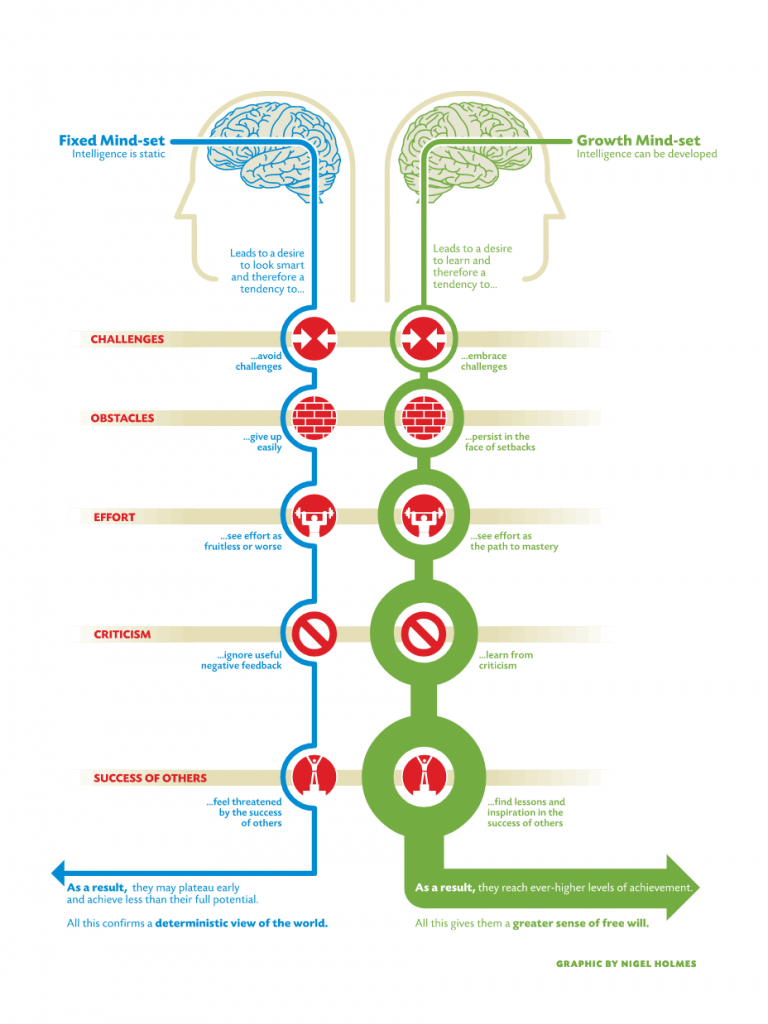"Hey - We need to talk about something important…. Your performance lately hasn't been up to par and things haven't been getting better."
Then you hear those dreaded words – "I need to put you on a formal performance improvement plan. Do you understand what that means?”
Whether it’s you, a friend, or a colleague, being put on a performance improvement plan, it’s unfortunately a big deal; you need to realize the gravity of it, because it means you or they are not quite cutting it.
If you didn't get a sinking feeling just thinking about that scenario, then you need to. Because today’s post is going to show you how you can survive a performance improvement plan (PIP) and stay at the company you're at, avoiding being let go because of it.
Remember - That is the nature of what PIPs are for — either you improve and change, or you'll be terminated.
With the hope that you can make the needed changes and improvements, this guide will take you through understanding exactly what a PIP means, what to do next, and how to successfully work through one.
Table of contents:
Why Your Employer Uses a PIP in the Workplace
You get put on a PIP for a couple of key reasons, which are important for you to understand.
This legal process documents your performance, where if not improved, provides your employer with legal justification to terminate your employment.
So this is about as serious as it gets.
Being put on a PIP is essentially one step away from potentially being let go from your company.
Your manager had to get HR's approval and involvement to initiate this formal process against you. Realize this is not just a simple dispute with a coworker or your boss - you are legitimately at risk of no longer being employed.
A performance improvement plan is an extremely serious matter because it is a standardized, formal process that many companies use to protect themselves legally. Whether you agree with the reasoning behind it or not, you must take being put on a PIP just as seriously.

What to Do When You Get Put on a PIP
Let's dive into what exactly you should do now that you’ve received a PIP.
If you follow the steps we're going to cover today, you'll be putting your best foot forward to be prepared, regardless of the outcome. We're going to help you think through everything that could happen.
And realize, a performance improvement plan is not a career death sentence.
I've seen it firsthand with thousands of managers trying to improve their teams - hardworking employees who listen to their manager’s feedback can not only survive a PIP, but actually go on to thrive and even get promoted in the future.
I remember one customer in particular who used our process for turning around underperformers to create a really crystal clear PIP process for their team. Not only did the two people they put on PIPs improve enough to avoid being let go, but they actually thrived and ended up getting promoted within a year or two.
So don't think it's always a death sentence. And certainly, if your manager sent you this blog post, realize it's because they care and actually do want you to get better.
Take it seriously and try some of these approaches.

Keep calm
The most important thing you need to do as soon as you get put on a PIP is to keep calm.
Blowing up at your manager will only make things worse, more contentious, and frankly make them less likely to want to help you.
Instead, do your best to stay calm and pay close attention.
Think about what they are suggesting. What did they pinpoint that you're not doing well enough? Because objectively, they are the ultimate decision maker on whether you adequately addressed and improved on the items outlined in the PIP.
It's critical that while this is happening, you stay composed and listen intently. What specific feedback and areas for improvement are they suggesting? Ask clarifying questions to gain full understanding, and take their thoughts seriously.
If you're really struggling to keep your emotions in check, learn techniques like box breathing and deep breaths, as they can help you remain calm. Here is a quick video on how you can do that:
The most important thing to remember at this stage is to try hard to truly listen. Your manager likely put a lot of work into the PIP, so you will make them feel heard and make yourself more likely to survive the PIP if you pay attention and show you take their concerns seriously.

Identify the root causes
With a calm and focused mindset, identify the root causes by pushing your manager for specificity on the issues they believe you have. Get crystal clear on exactly what needs to improve, how your success or failure will be measured, and what the most important areas are for you to focus on first.
Don't let things remain vague or get stuck in disagreements over what was communicated. Document everything thoroughly, including your manager's verbatim explanations, so you don’t forget and have a paper trail for yourself.
An invested manager will take time to explain the expected changes in tangible detail, while a manager who is just hoping you fail will be forced to give you a fair shot if you get the specifics you’re looking for here.
The key here is that when you have that clear list of expectations, it's easy for both of you to check off when you've demonstrably improved in each area. Vague objectives raise the risk of misalignment later on, so get as much detail at the beginning as you can.
Once you understand the root causes and prioritized changes required, you can put in the hard work needed to turn things around. Yet, without it, you’re set up to fail, because it won’t be clear if/when you’re improving.

Start changing
Now that you understand the root causes and your key areas for improvement, it's time to put in the hard work to actually change.
You need to start making tangible changes based on the feedback you received, because it was given for valid reasons. Your manager wouldn't go to the trouble of initiating a formal PIP if the issues weren't serious.
Debating or arguing against the PIP is futile. The sooner you fully embrace and commit to changing the behaviors outlined, the better your chances are of successfully completing the PIP and avoiding termination.
If instead your manager senses an unwillingness to change, they are more likely to simply run out the clock rather than continue investing effort in you, so stop fighting it right now if you are.
Take ownership and find ways to break your bad habits that led to this situation. A few examples of what this might look like:
- If criticized for sloppy work, start double-checking everything before submitting and use tools like Grammarly and Hemingway to help review your output.
- If labeled as too harsh with colleagues, read books like "How to Win Friends and Influence People" and consciously put that advice into practice.
- If messaging/communication is an issue, run emails/communications through AI assistants like Claude and ChatGPT for feedback before sending them to colleagues.
- If missing deadlines is the problem, set reminders on your work calendar with buffer times and internal deadlines earlier than the real due dates.
With AI capabilities increasing, there are more options than ever before to affordably get personalized help improving specific skills. Put in the hard work now to break bad habits and cement better practices.
The key is to proactively find tactics, tools, and resources to help you improve in the development areas the PIP outlines. These can then become foundational habits you use for the rest of your tenure at this job, and potentially blossom into long term career skills.

Seek Feedback and Support
Making genuine changes doesn't happen in a vacuum. As you put in the hard work, be sure to get support and regular feedback and from your manager and any other stakeholders involved in evaluating your PIP progress.
Your manager will ultimately be the judge of whether you've successfully met the improvement goals or not, so it's extremely beneficial to frequently check in and get their perspective on your progress. Remember: Just because you think you're on track doesn't mean they'll agree.
If you already have recurring 1-on-1s with your manager, consider asking to increase the cadence to weekly or even twice per week during your PIP. Come prepared with work samples, questions, and demonstrate you're taking the process seriously and value their time. If you do this, your manager is likely to increase their investment in you, and be more supportive of your efforts as you continue improving.
Most importantly, the more you can get feedback throughout the PIP period, the more opportunities you'll have to course-correct if needed before time runs out. PIPs typically have defined timelines of 4, 8, or 12 weeks that won't be extended, so more chances to make changes based on your manager’s feedback gives you a higher chance of surviving your PIP.
Embrace a Growth Mindset
Succeeding when you’re put on a PIP requires a fundamental shift in your mindset. You have to be willing to learn, grow, and change, because what you were doing before wasn't working; that's why you were put on a PIP in the first place.
Adopting a fixed mindset resistant to change has already set you up for failure. You must embrace a growth mindset that's open to developing new skills and capabilities.

The truth is, that anyone can learn and improve with the right mindset and approach. A growth mindset recognizes that your abilities aren't static — they can grow through your dedication and hard work.
Take this as an opportunity. Instead of being defensive, listen intently to the feedback your manager is providing. Use it as motivation to expand your outlook and skill sets.
With a growth mindset, you don't just save your job — you grow your potential for the long-term.
A fixed mindset will inevitably lead you out the door when the PIP period expires, because if you don’t change, the PIP is there to document that as a reason to fire you. However, a growth mindset will open new paths you can take to become a stronger team member and provide greater value to your company.
Hot take:
— The Random Recruiter (@randomrecruiter) January 23, 2024
If you’ve been put on a PIP, the best course of action is not to try to improve.
It’s to find another job.
Prepare your Plan B.
I do want to emphasize that if you do all these things, you're very likely to survive your PIP. However, you must understand that there aren’t any guarantees.
Some managers and companies are predisposed to terminating employees put on PIPs, regardless of any efforts you make.
And even if your manager sees you make a real effort, there a few scenarios where you may not last despite your hard work:
- The PIP is just a formality ("CYA") before firing you. In this case, your manager will avoid giving real feedback or setting clear expectations because the decision has already been made. They simply want to create a formal paper trail.
- Impossible standards are set up front: Another way managers ensure people fail a PIP is to give you impossible tasks, like completing a 6-month project in 2 weeks. This prevents your best effort from ever being enough
- Company layoffs: During workforce reductions, some companies make the tough call to automatically terminate all employees on current or recent PIPs. You can’t predict this one, and your manager could appreciate your efforts and have no choice in this case.
While you hope for a manager truly invested in your growth, you have to protect yourself. Sometimes, a PIP means the writing is already on the wall.
In that case, and frankly, just in case, you should always document your key accomplishments and wins at your job while you still have access. Then, update your resume with specific numbers and achievements, and start looking for other opportunities.
There’s a reason the old saying goes, “It’s easier to get a job while you still have one.”
In this case, it helps even more, because now you don’t have to explain why you left your last job as you would if you started applying for jobs only after you were let go due to a PIP.
The hard truth is that despite your best efforts, the PIP may just be the first step towards eventually parting ways. Having a "Plan B" in progress while you work to improve will ensure you're not caught flat-footed or unemployed for too long. You may even find a job you would be happier at.

Final word
A performance improvement plan can feel like a devastating blow, but it doesn't have to be a career death sentence.
Whether you use it as a wake-up call to seek out a new role, build valuable new skills, or buckle down and improve in the ways your manager has outlined - a PIP can actually become a positive turning point for you.
If you really did need that harsh wake-up call, use this as fuel to fire yourself up. Let it create motivation to become better - whether for your current job or your next opportunity.
While PIPs are certainly a serious matter, if you have a manager that cares, it doesn't mean it's the end of the road for you at this company. You can survive a PIP if you put in the work.
And even if your manager seems set on your eventual termination, you can still use this as an inflection point to develop yourself and take needed steps to change. With a growth mindset, and by following the tips I’ve outlined here, you'll emerge from this chapter better equipped for whatever comes next in your career.





